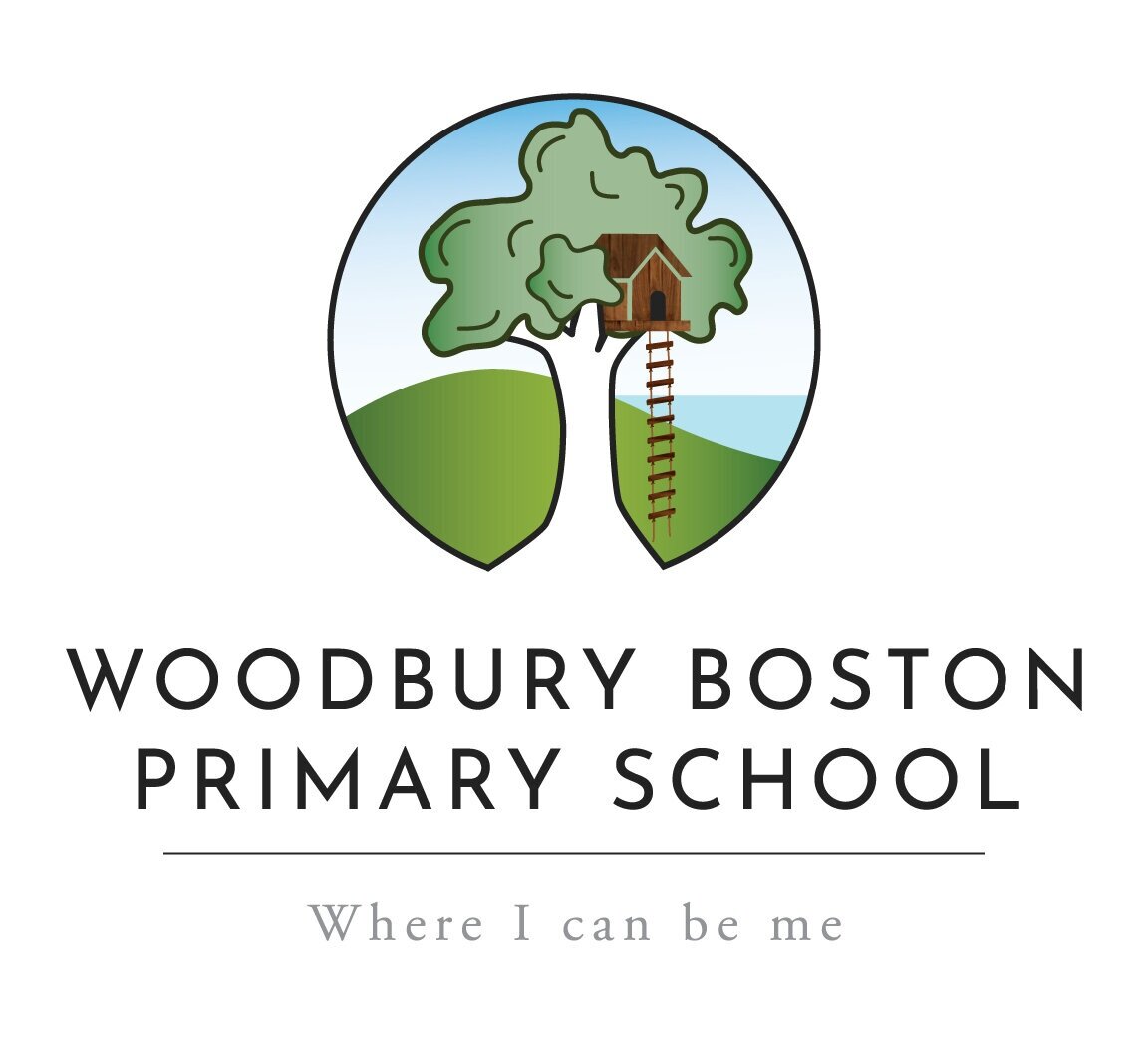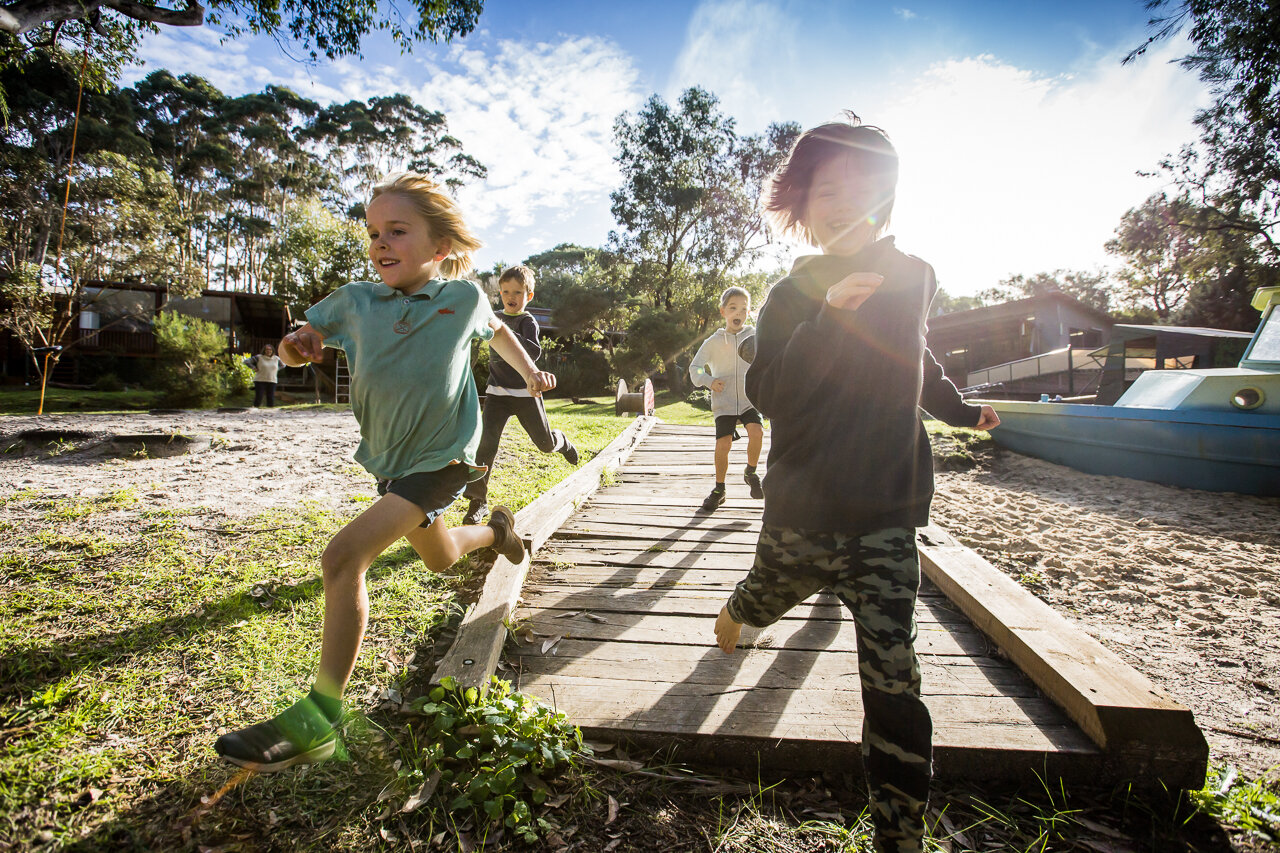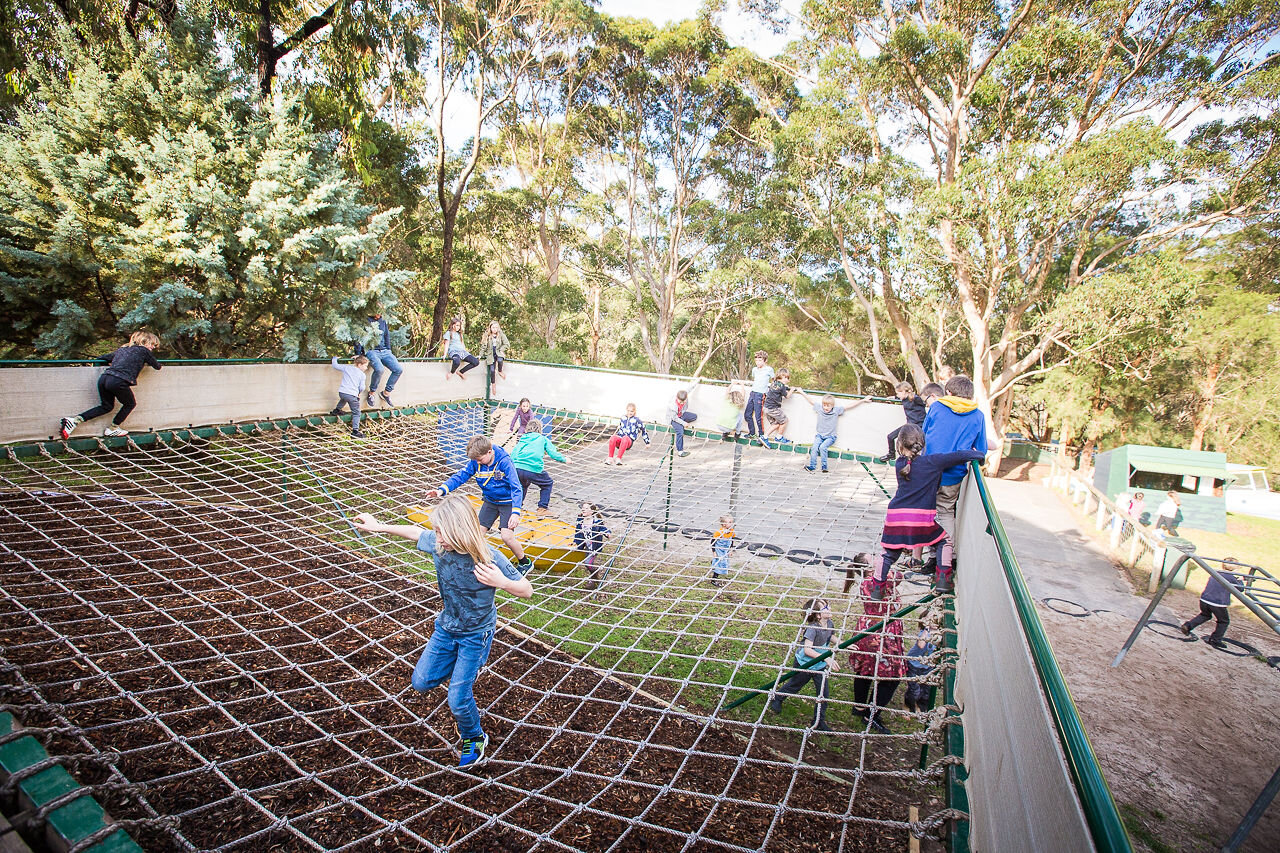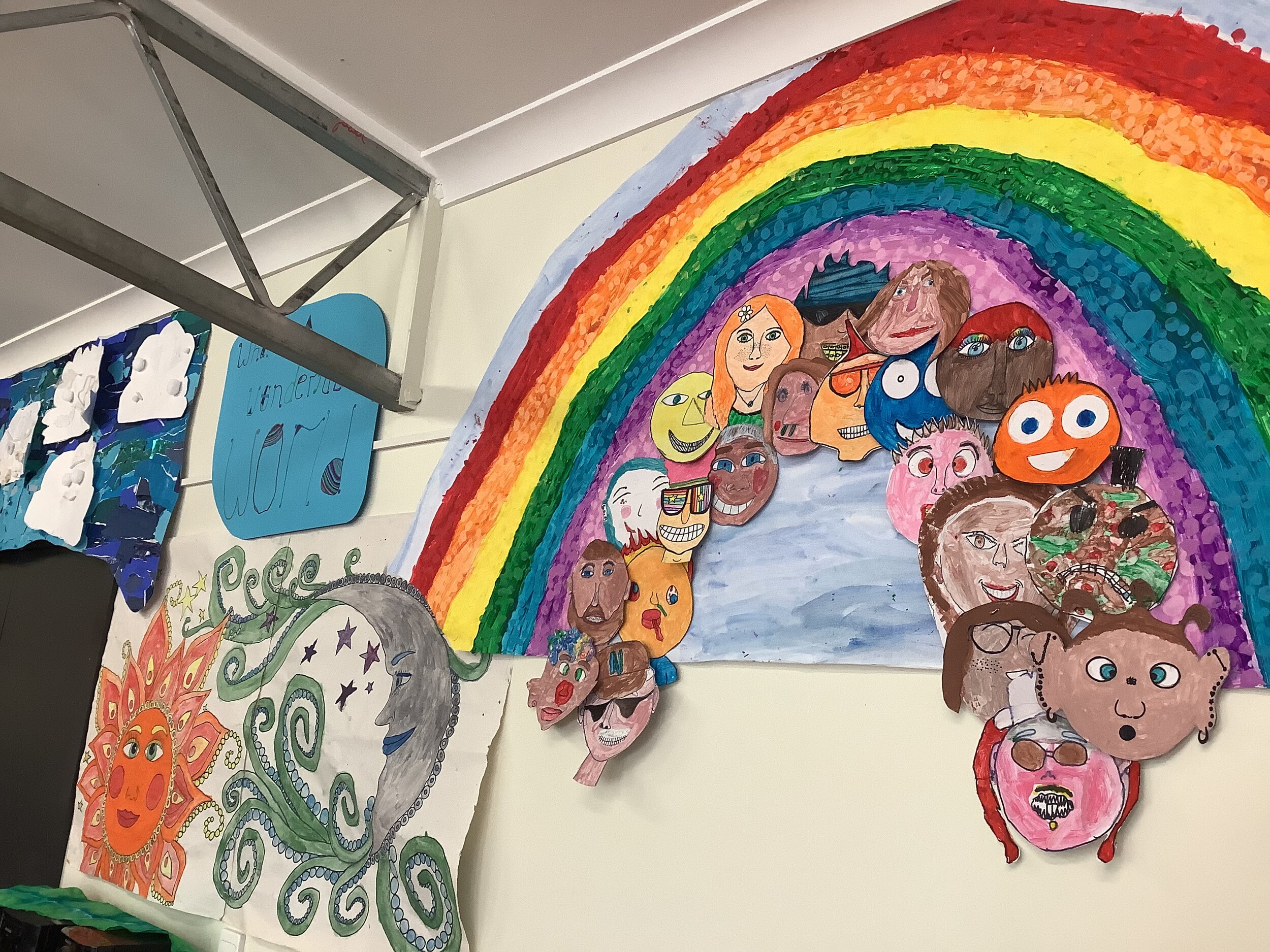The Woodbury Boston difference: what does it mean to educate the Whole Child?
There are lots of special things about Woodbury Boston Primary School. Overlooking the Southern Ocean and with West Cape Howe National Park on our doorstep, our location is absolutely unique. But that’s not what we’re proudest of.
For over 40 years, we’ve been singularly focused on educating the whole child — not just the bits of them that know times tables and grammar rules. Here’s how we make sure your child feels healthy, safe, supported, engaged, and challenged at school every day.
Educational trailblazers
When Forrest and John Woodbury founded the school in 1980, they were ahead of their time. Their goal was to create an environment where the children were treated as individuals, where their varying educational needs and interests were met, and where they were treated with kindness and respect.
They knew one thing for sure: children learn best when they feel safe and happy. They also knew that mainstream schools — in the rush to fill little brains with knowledge and skills — could forget that they were dealing with human beings.
At Woodbury Boston, they decided, we do not forget.
Educational best practice
Forty years have passed. These days, Forrest and John’s approach has a fancy new name: The Whole Child Approach. Recent research in neuroscience, developmental and learning sciences, education and sociology “confirms that a ‘whole child’ approach is … necessary to ensure that children learn well”.
Wondering how that looks in practice?
Values education
At Woodbury Boston, values education is interwoven into every interaction. Our focus on Compassionate Communication means that all children and adults are treated with equality, respect, and kindness at school.
Whole-class and whole-school decision making helps your child realise that everyone’s voice matters. School adults and older students model and explicitly teach problem solving and conflict resolution skills that empower your child to develop autonomy. That deep sense of their own worth is a predictor of resilience as they grow.
Supportive community
We deliberately keep our school small. This means we truly know every child and the family they come from. We honour our students for who they are, rather than expecting them to fit a particular mould.
That doesn’t mean that we don’t have rules, of course. Our community has high expectations for each child. But here’s the thing: by supporting and affirming the person that your child is, we nurture and challenge them to be their best possible self.
This culture of cooperation and creativity helps your child to become an independent thinker, an engaged learner, and a confident advocate for themself and others.
Bespoke learning experiences
With creative specialist educators and acres of bushland to explore, learning is always an adventure at our school. Engaging, inclusive exploration of the Western Australian Curriculum is based on the class’ interests at a particular time.
Inquiry-based learning frameworks help us determine what our kids are passionate about, and project-based learning execution makes learning relevant, challenging, and fun for children. In fact, we’re so keen on inquiry, we’ve written two blogs about it! Check out Part 1 and Part 2 if it floats your boat.
The Woodbury Boston way
If you’d like to learn more about Woodbury Boston Primary School, check out this post on nature-based learning from K-6, this one on Out & About, or this one on whole-school Parliament sessions.
And if you think our school might be right for your family, you’re welcome to book a tour. We always say ‘every day is Open Day at Woodbury Boston,’ and we’d love to show you around.
Recommended Reading
-
2023
- Jul 31, 2023 Benefits of STEAM in a nature-based learning environment Jul 31, 2023
- Jul 31, 2023 STEAM on campus: a student-designed outdoor classroom Jul 31, 2023
-
2022
- Sep 21, 2022 Here’s how we personalise your child's learning Sep 21, 2022
- Aug 8, 2022 What puppeteering taught the Koomals about Design Thinking Aug 8, 2022
- Jul 21, 2022 Dirty feet: here’s what our students learn in the bush Jul 21, 2022
- Jun 16, 2022 Notes from Nick: our Principal shares his experience Jun 16, 2022
- Jun 6, 2022 The Importance of Play Jun 6, 2022
- May 18, 2022 Meet Val May 18, 2022
- May 18, 2022 Peer Support: fostering student leadership May 18, 2022
- Feb 10, 2022 The Woodbury Boston difference: what does it mean to educate the Whole Child? Feb 10, 2022
- Feb 10, 2022 The 5 educational models that make up our teaching style Feb 10, 2022
-
2021
- Dec 13, 2021 In-school Orientation Day Dec 13, 2021
- Nov 4, 2021 Meet Nick: Philosopher and veteran educator Nov 4, 2021
- Oct 16, 2021 Celebrating 40 (+ 1) years of Woodbury Boston Oct 16, 2021
- Aug 6, 2021 Playgroup at Woodbury Boston welcomes parents and bubs Aug 6, 2021
- Jul 9, 2021 What a wonderful learning experience Jul 9, 2021
- Jun 23, 2021 Meet Whitney: rock star and memory keeper Jun 23, 2021
- May 30, 2021 Out and About May 30, 2021
- May 18, 2021 Here’s what our students learn during our whole-school concert May 18, 2021
- Mar 24, 2021 Parliament: Empowering students to use their voices Mar 24, 2021
- Feb 4, 2021 Wondering what we learn in kindergarten? Feb 4, 2021
- Feb 4, 2021 4 ways to prepare your child for school Feb 4, 2021
-
2020
- Nov 19, 2020 Out & About: learning in the real world Nov 19, 2020
- Nov 16, 2020 Here’s how to get involved at Woodbury Boston Nov 16, 2020
- Oct 29, 2020 IBL Part 2: Inquiry-based learning in action Oct 29, 2020
- Oct 29, 2020 IBL Part 1: 4 steps to inquiry-based learning Oct 29, 2020
- Sep 12, 2020 Meet Byron — teacher and adventurer Sep 12, 2020
- Sep 10, 2020 Camps and adventure at Woodbury Boston Sep 10, 2020
- Aug 6, 2020 Beyond early childhood: Nature based learning from K-6 Aug 6, 2020
- Jul 29, 2020 Brains and bellies: The importance of a nourishing lunch Jul 29, 2020
- Jul 29, 2020 Here's how to choose the best school for your child Jul 29, 2020
- Jul 28, 2020 Dirty feet: 4 ways bushwalks make our students smile Jul 28, 2020
Woodbury Boston Primary School is a progressive independent school nestled in the bush between Denmark and Albany WA. We know that children learn best when they’re happy and having fun. With a strong focus on community, respect, independence and nature-based teaching, our students learn the Western Australian Curriculum and so much more. For more information or to book a personal tour, please ring 9845 1185.





